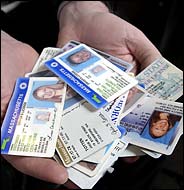Finding the Right Employee Takes Time
October 3rd, 2012 When it comes to adding the right people to your staff, there is no such thing as being too careful. But how do you know you chose well until you actually hire someone and they start working for you?
When it comes to adding the right people to your staff, there is no such thing as being too careful. But how do you know you chose well until you actually hire someone and they start working for you?
The interviewing and screening process is your chance to establish expectations, measure skills and abilities, and determine who is the best fit for the job and your company.
Screening starts with careful resume review. Be on the look out for:
- Effective communication skills
- Careful attention to grammar and punctuation
- Large gaps in employment
- Clear and concise statements
Even font and color choices can tell you a great deal about a candidate. Note also what is left out of a resume. What is he or she not saying? Are the skills and work experience you need mentioned in the list of qualifications, or not? If you need to measure skills through an assessment test, do so before going any further.
If you like what you see, a short screening call can tell you whether to continue to a face-to-face interview. Schedule the call ahead of time. Keep it to just a few minutes. Note whether or not the candidate is on time and prepared to speak with you. Ask candidates about their current positions, if they are currently employed, as well as why they are seeking a new job. Find out what they are looking for, and what sets them apart from others. Pay attention to the level of enthusiasm the person has, his or her ability to express what they do for their current employer, and whether they can sell themselves.
If you choose to continue in the interview process, it becomes more important that the candidate fits your company’s culture. Of course, that has to be well-defined first. But it’s hard to go wrong when you hire a person who is motivated, has a positive attitude, a great work ethic and ability to work well on a team.
Before you offer the position, be sure to run a pre-employment background check. Employee screening can limit your exposure to security breaches and safety issues, while protecting your company and staff from harm.
Finding the right employees leads to much greater productivity, less turnover and lower costs. It’s worth the investment of your time and effort.









